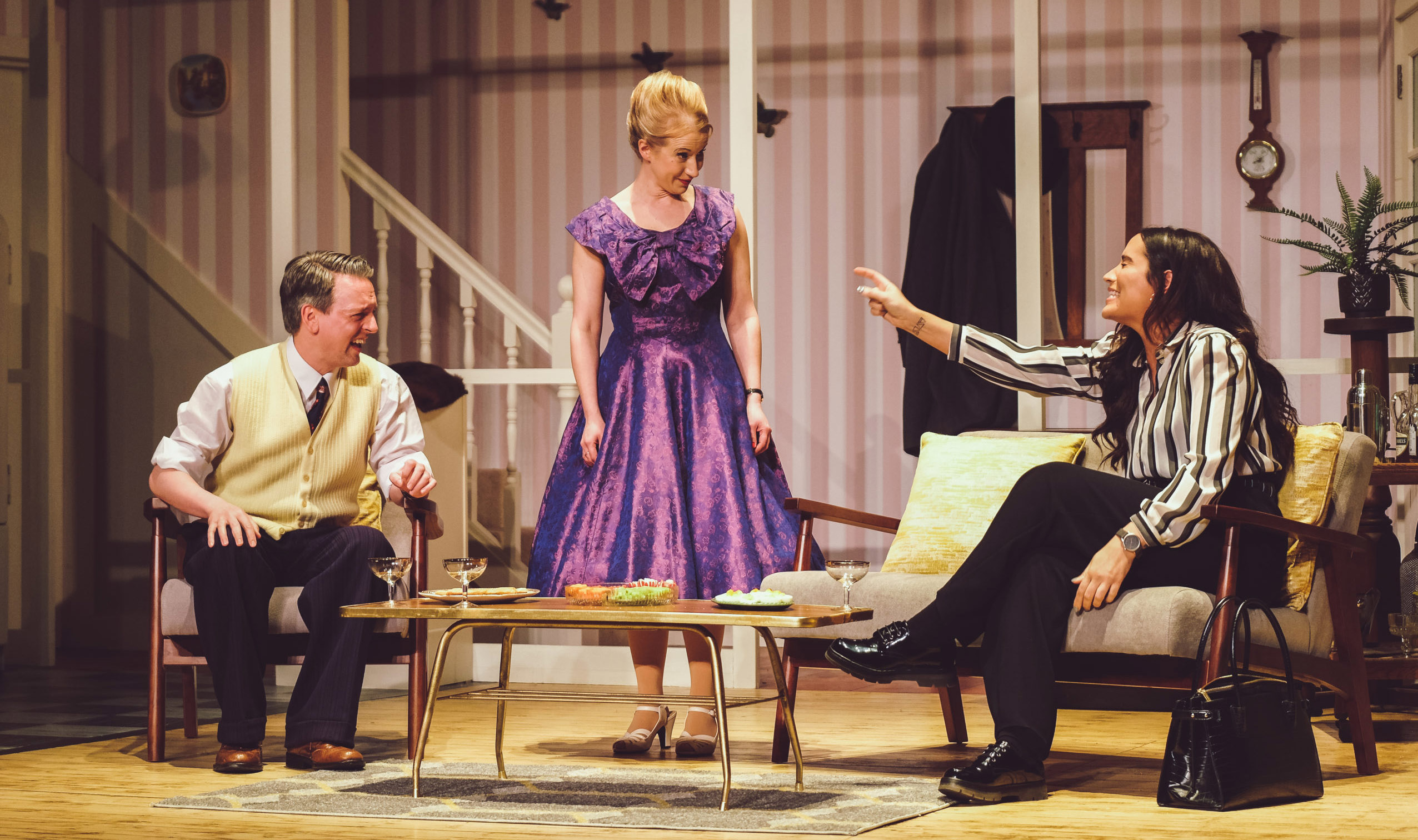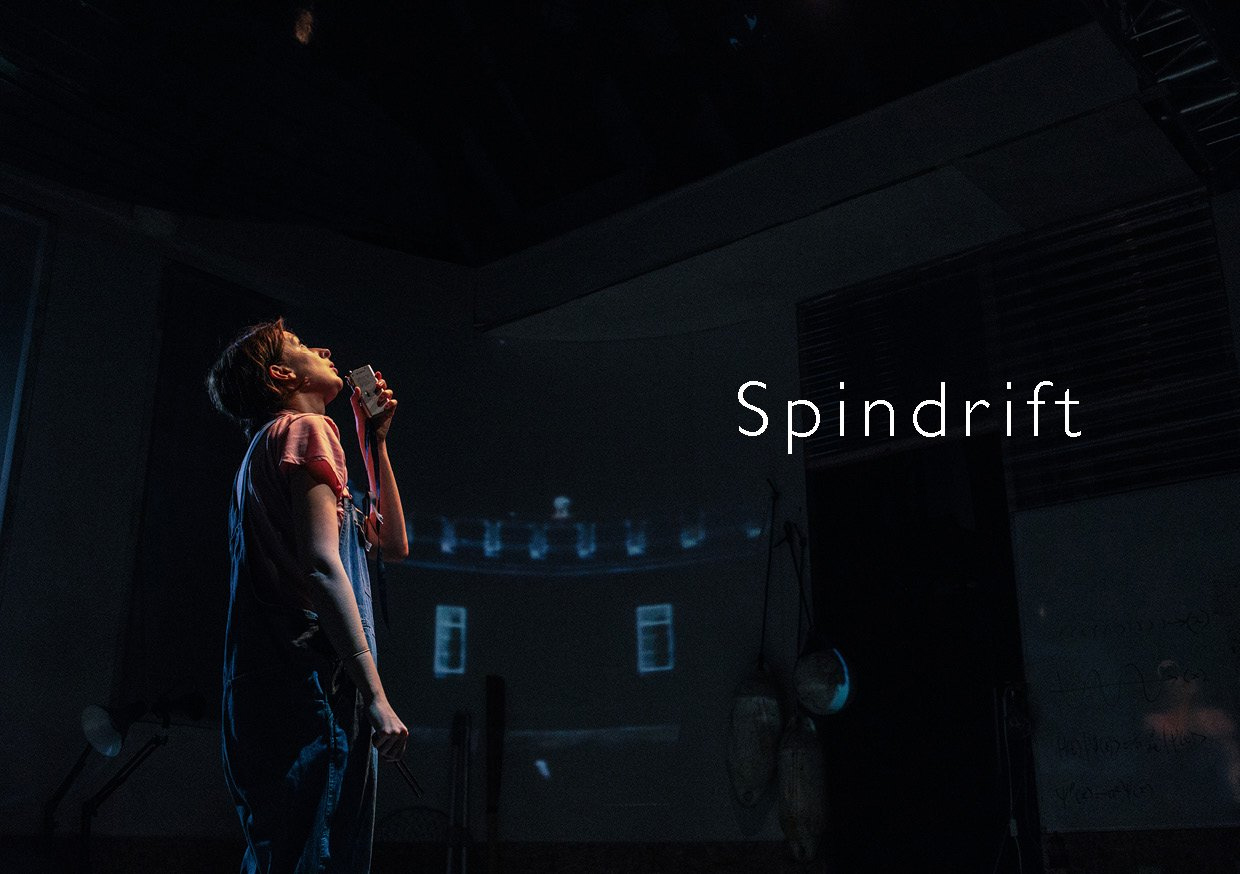(Originally published in The Stage on 28 March 2022)
Theatre Royal Bury St Edmunds’ new in-house production of Laura Wade’s Olivier Award-winning comedy Home, I’m Darling is gingham and crinolines, lipstick and lindy hop, cocktail shakers and trilbies…plus #MeToo and simmering sexism. Directed by Owen Calvert-Lyons, this show sparkles with talented performances while intelligently exploring the troubled distance between the issues at the heart of the feminist movement and the forgetfulness of modern women.
As the play opens, Dawn Allsopp’s visually delicious set design whisks us back in time, evoking the commercialised fantasyland of the 1950s, via pink and blue pastels in the kitchen and hall, and minty mid-century modern in the living room. We meet Judy and Johnny Martin (Rosanna Miles and Toby Manley) at their breakfast table; they are apparently an ‘offensively happy’ couple.
However, we learn via one brilliant visual gag in scene one that the story is actually set in the present day. The couple, at Judy’s zealous urging, has adopted a 1950s lifestyle, including traditional gender roles. This plot device offers a bouquet of ironies and thought-provoking comparisons between the roles played by men vs women, both now and then.
Although the script is peppered with strong jokes, the show’s undertone is studiously focused on Judy’s increasingly desperate romanticization of the past, set against her mother Sylvia’s true lived experience of the 50s, which was not so rosy, of course.
Rosanna Miles’ portrayal of Judy foregrounds the brittle, passive aggressively dominant outer shell of her adopted persona as a 1950s housewife, and she plays it stylishly; however, her performance is somewhat lacking in a more thoughtful engagement with who is at the heart of her character’s painful delusion – her past self, a vulnerable, confused teenage girl hurt by her parents’ divorce, who doesn’t understand and can’t yet see the truth about fathers in the 50s, or feminism.
Hilary Harwood’s superb performance as Sylvia is one of the high points of the show, with note-perfect deadpan comedy and honest outrage as a first wave feminist elder. Her speech at the dramatic climax of the show pipes in truth, passion and the power of women, a moment when the show resonates as an instrument of social change, beyond its role as entertainment.
The other standout performance is Toby Manley as Johnny, who movingly portrays a modern, complex man trying to balance his wife’s delusion with humour, gentle attempts at intimacy, earnest anger, and ultimately, persistent love.
Kerry Bennett as Johnny’s boss Alex gives an enjoyable performance, and Charles Haggerty is suitably lecherous as Marcus, a man who hasn’t evolved past the 1950s. Ellie Burrow as Fran is a wonderful leavening agent in the cast, giving a bright, sympathetic and funny performance.
Overall, this is an entertaining, engaging production with an important social message at its core: the feminist movement isn’t finished yet.





